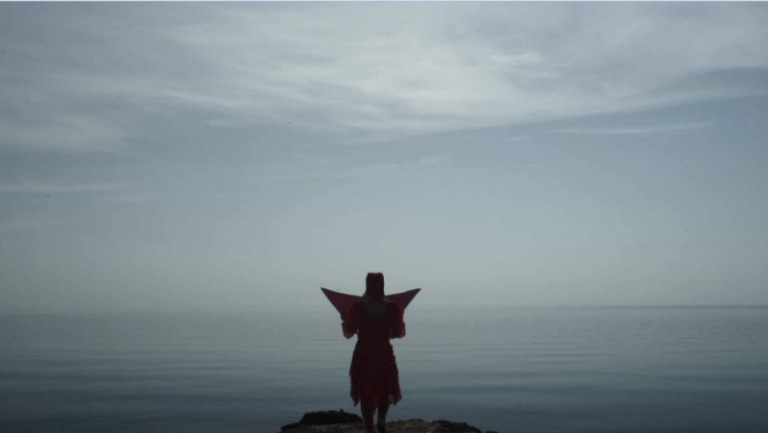
Lázaro J. González’s documentary film Villa Rosa premiered at the 38th edition of the New Latin American Film Festival [Festival de Nuevo Cine Latinoamericano] last December (2016); the town referred to as having beaten homophobia is Caibarién, which has now become a symbol of inclusion. Here are excerpts of my translation of the article:
Caibarién, a small town that rejects patriarchal barriers with sexual diversity, is the protagonist of the documentary Villa Rosa (2016), by Cuban director Lázaro J. González, which was screened at a recent recent “Cinema under the Stars” event.
The film, which was screened on March 1 on the grounds of the Norwegian Embassy, tells how this town, located in the province of Villa Clara “has become one of the most respected sites for sexual diversity on the island,” according to the synopsis.
The testimonies of Adela (Cuba’s first and only transsexual council member), transvestites, homosexual couples, and images of the port and a picturesque aquatic carnival tell the unique story in 52 minutes.
The place
“I always saw Villa Rosa as a metaphor for what the whole island should be,” says Lázaro J. González, director of the medium-length film.
In his opinion, “it is ironic that in a small fishing village there would be so much respect for freedom of sexual orientation and gender identity, to the point of choosing a trans person as a representative to the government or that a popular holiday should be used to celebrate diversity.”
The documentary is also “a way of expressing how the problems that still afflict the lesbian, gay, trans, bi, intersex and queer (LGBTIQ) community in Cuba sometimes depend more on political circumstances than on homophobia or prevailing machismo at the social level.”
With respect to this, he remarked that “this is why emphasis is placed on the necessary change in the Constitution to approve egalitarian marriage.”
Likewise, “we show how people of different sexual orientations and gender identities can happily come together in the same public space, without ghettoization, which allows children to enjoy a show of transvestism along with their families in a very natural way. [. . .] The intention we always had was to show that this anomaly called Caibarién should be the norm.”
For screenwriter Nelson González, “the film reinforces that sense of community and this is why the characters interact, know each other, support one another, and attend activities organized by others.” He stressed that “another idea was to show how the LGBTIQ community there is supported and that is why they have achieved a space of peaceful and respectful coexistence.”
In his opinion, the documentary “reveals that there can be another way to embrace life and socialize in a much less patriarchal, heterosexist and exclusionist.”
In Villa Rosa, writer and transvestite Pedro M. González gives life to the figure of the Russian drag queen Roxana Rojo, who is renowned in the entire country.
“We set out to make this figure (Rojo) serve as a point of cohesion, starting from the fact that this character appeared in an earlier work called Mascaras, also directed by Lázaro,” said the artist. He also explained that “in a certain way, she is a link or liaison serving to connect to the townspeople, to a whole group of local transvestites, and also to those who work in the production of the carnival.”
For him, who has always lived in Caibarién, the essence of this audiovisual piece is that “it reflects the understanding of people who used to be intolerant and over time developed respect for diversity.”
He believes that the film “should leave people with a sense of enthusiasm and healthy envy to know that there is a town where people are different, in which its people do not usually discriminate against anyone due to their gender identity and sexual orientation. [. . .] I wish there were other places with so much freedom to express sexual orientation and with that level of cultural dialogue between surrounding carnival and other popular festivals. [. . .]
For full article (in Spanish), see http://news.caribseek.com/33651-documental-devela-como-un-pueblo-cubano-vencio-la-homofobia-cuba
Share this:





